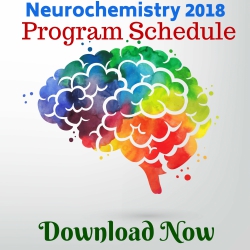
Parasuraman Basker
Public Health & Preventive Medicine, India
Title: Role of neuro endocrine system on the function of male accessory reproductive glands (MARG) in a cotton bug Serinetha augur (Fabr) Coreidae: Hemiptera
Biography
Biography: Parasuraman Basker
Abstract
The neuroendocrine complex of adult insects consists of neurosecretory cells (NSC) of the brain, corpora cardiaca (CC), and corpora allata (CA). Following the pioneering work of Weyer (1935) in honeybees, several investigators have been explored on the histomorphology of NSC, CC and CA in many orders of insects including in hemipteran insects. The present study is dealt the regulatory mechanism of the male accessory reproductive glands (MARG) of a hemipteran cotton pest Serinetha augur. Histological and electrophoretic studies were made to understand the interrelationship of the neuroendocrine complex (NEC) and the MARG of the insect. The brain of Serinetha augur is divisible into three regions, namely proto-deuto and tritocerebrum. Protocerebrum lies at the anterior region, deutocerebrum is in the latero mid region and tritocerebrum is in the latero posterior region of the brain. The neurosecretory cells (NSC) in the brain complex have been arbitrarily classified into four types (A, B, C and D) and are connected by pars intercerebralis. NSC in this region is distinguished as median neuro secretory cells (MNC). Among NSC identified in three regions of the brain of Serinetha augur A is found larger (13- 18 microns) which is located in tritocerebrum with weak reaction of chrom alum haematoxylin and phloxin (CAHP) due to lower concentration of neurosecretory materials. The type B are 10-12 microns situated in protocerebral region with higher concentration of neurosecretory materials. C and D are moderate and weak reaction respectively with aldehyde fuchsin (AF) and CAHP indicate lesser amounts of neurosecretion. On the regulation of the MARG, it was understood that CA took part directly for its maturation and function. It was proved by the experiments of gonadectomy and extirpation of the MARG. Besides, electropherogram of brain complex in pre and post mating insects showed the quantitative changes of protein. This observation further supports the view that NSC in brain complex has a regulatory role in the MARG which has varieties of vital functions in sperm transfer activities.

